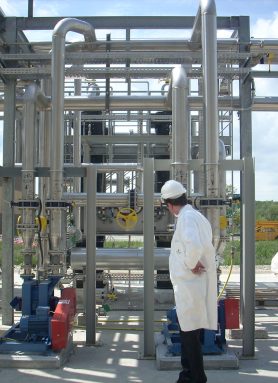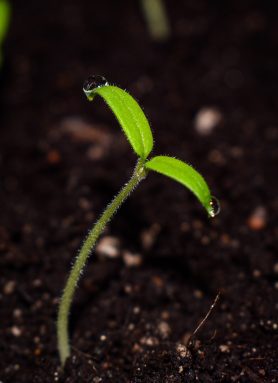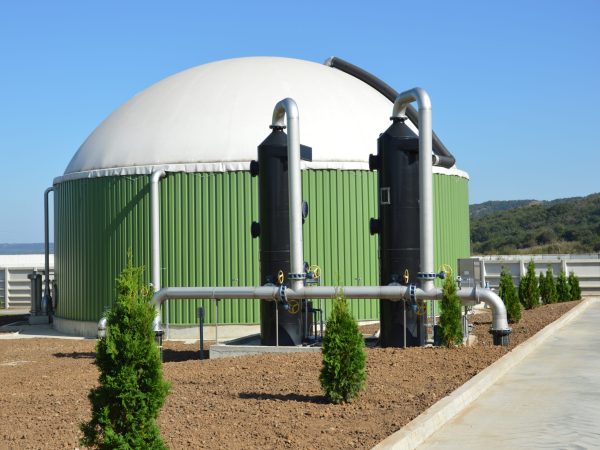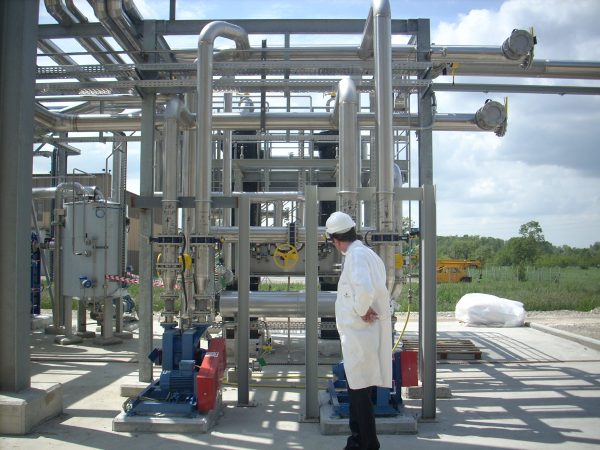About RNG
Renewable Natural Gas: The Only Carbon-Negative Renewable Energy
RNG HIGHLIGHTS

Reduces methane emissions

Uses existing pipelines

Improves soil health
RNG, THE ENVIRONMENT AND THE CIRCULAR ECONOMY
Renewable Natural Gas (RNG) is a proven, clean technology. As opposed to Natural Gas, Renewable Natural Gas is not derived from fossil fuels. It is created by breaking down existing organic materials, like cattle manure or food waste. It is a carbon-negative fuel source, which means it takes more carbon out of the environment than it produces. Our RNG production process not only produces clean energy but also mitigates the environmental impact of greenhouse gases.
By diverting organic materials from open air decomposition, and instead processing it to produce RNG, we effectively reduce the amount of organic material that decomposes and releases harmful greenhouse gases into the atmosphere. Methane emissions, which are a natural byproduct of decomposing organic materials, are significantly reduced through this process. Methane is a potent greenhouse gas with approximately 25 times the global warming potential of carbon dioxide, as calculated over a 100 year period. But given the environmental tipping point of our atmosphere, the immediate impacts are more important to take into account, and therefore methane should be calculated as being 80 times more damaging. The reduction of methane emissions is a critical advantage of RNG.
RNG can be injected directly into natural gas pipelines and delivered to Canadians without the need for system changes or new infrastructure. In fact, most Canadian energy companies already have ambitious goals to include RNG in their pipelines to existing customers. There are more than 300 active operations in Canada already reducing carbon dioxide and methane emissions by 8Mt per year and generating more than 20 PJ of energy.
The circular economy aspect of RNG production is a crucial factor in its overall sustainability. Through the anaerobic digestion of organic materials, RNG production yields a valuable by-product called digestate. Digestate contains high levels of nitrogen, phosphorus, and other essential nutrients for plant growth. By utilizing digestate as a fertilizer, we can displace the need for traditional fertilizers that are produced using fossil fuels. Conventional fertilizers contribute to greenhouse gas emissions during their production process. In contrast, digestate-based fertilizers support sustainable agriculture and reduce the environmental impact of traditional fertilizer production. Furthermore, displacing fossil fuel-based fertilizers with digestate fosters a more sustainable approach to agriculture, reducing our dependence on non-renewable resources and promoting a greener, circular economy.

Anaerobic Digestion
Anaerobic digestion (AD) is a natural process where bacteria break down organic material and produce biomethane (also called Renewable Natural Gas), which can then be used as fuel in place of gas retrieved from harmful extraction methods.
Unlike composting, which allows food to break down in an open environment, AD captures and uses the gases that result from organics decomposing and therefore reduces greenhouse gas emissions. AD has the potential to reduce global GHG emissions equivalent to 10-13 percent of the world’s current greenhouse gas emissions.

MEASUREMENT OF RNG
In Canada, we measure RNG as GJ –gigajoules. That’s one billion joules, which is a measurement of a kg of mass moving at the speed of one meter per second. But it’s easier to understand joules when compared with other types of energy that we’re familiar with. 1 GJ of renewable natural gas has the same amount of energy as 26.1 litres of fuel oil, 39.2 litres of propane, or 278 kilowatt hours of electricity. Most simply put, one GJ of RNG is equivalent to 4,633 hours of an average 60-watt lightbulb.
Contact Us
We are actively developing projects across North America and welcome all enquiries, from process to partnerships.